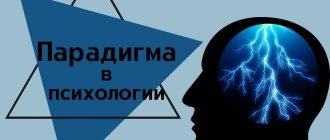Empiricism in philosophy is called one of the methods of understanding the world around us. Its basis is the individual’s own personal experience, obtained through his senses, and any conclusion based on personal experience is recognized by empiricists as either true or close to true. The founder of this movement is the English philosopher Francis Bacon. From this article you will learn in more detail about what empiricism is, what its main ideas are, how empiricism and rationalism are related.
The essence of the concept
Empirical thinking in philosophy is contrasted with the mystical and rational. However, it is not so much an antagonism as it is located between these methods of cognition, combining some of the elements characteristic of them.
This type of cognition is characterized by:
- reliance on sensations;
- raising experience to absolute value;
- belittling or ignoring rational methods - theories, analytical chains, thought-out concepts;
- intuitive awareness or "gut feeling".
Empirical thinking does not completely deny the existence of theories and thoughts, but it does not understand them in the same way as is typical for rational methods of cognition. The only true source of knowledge, as well as its criterion in this method of thinking process, is experience. Only the natural flow of things, which can be felt and observed, forms the basis for this version of the organization of thinking. At the same time, the concept is characterized by both inspiration and internal experiences. These manifestations are included in the empirical characteristics of thinking, as well as contemplation, observation, and experience.
What is empiricism
The concept of “empiricism” unites more than 10 separate directions in the theory of knowledge. A common feature of various theories of empiricism: knowledge is the result of life experience. It is reliable knowledge because it reflects events that actually happened. But life experience cannot be considered the only source of reliable knowledge. A single experience does not reflect the completeness of observations; it is one of the versions of objective reality.
Empiricism is based on the following principles:
- A series of events creates an associative connection. If event A occurs, event B will occur.
- The connection between experience and reaction to an event arises as a result of repeated repetition.
- Gradually, the associative series becomes familiar and inextricable. It becomes impossible to separate the perception of an event from the lived experience.
- Such connections arise not only during the life of a particular person. They are formed over several centuries, millennia. Also, the development of the animal world causes a predisposition to the emergence of connections. Spencer believed that a person is inclined to have associations from birth. They are formed in the process of evolution and gradually become more complex.
- In addition to biological conditions, the social environment is involved in the process of forming experience. The cultural field influences the development of the individual, creating conditions for the formation of cognitive processes. Experience should be considered as a psychological phenomenon.
Cognition becomes possible thanks to the influence of experience on psychophysical processes and the formation of associative connections from individual elements of consciousness. The laws of knowledge have a high degree of probability, but they are not reliable. The laws of knowledge change and develop.
Obstacles on the path of knowledge
Francis Bacon divided the sources of people's mistakes that arise on the path to knowledge into four groups, which he called “ghosts” or “idols” - the ghosts of the clan, the cave, the square, the theater.
- Ghosts of the family originate in human nature, regardless of culture or human individuality.
- Cave ghosts are individual errors in perception; they can be congenital or acquired.
- The ghosts of the square, or the market, follow from social human nature - communication and the use of language in the process of communication.
- Theater ghosts are a misconception about the structure of the surrounding reality that a person learns from other people.
Get paid for your student work
Coursework, abstracts or other works
Representatives of empiricism
Representatives of empiricism include: Epicureans, Stoics, Skeptics, Roger Bacon, Galileo, Campanella, Francis Bacon (the founder of the new empiricism), Hobbes, Locke, Priestley, Berkeley, Hume, Condillac, Comte, John Mill, Bain, Herbert Spencer, Dühring , Iberweg, Goering and many others.
In many of the systems of these thinkers, others coexist alongside empiricist elements: in Hobbes, Locke and Comte, the influence of Descartes is noticeable, in Spencer - the influence of German idealism and criticism, in Dühring - the influence of Trendelenburg and others. Among the followers of critical philosophy, many are inclined towards empiricism, for example Friedrich Albert Lange, Alois Riegl and Ernst Laas. From the fusion of empiricism with criticism, a special direction of empirio-criticism was developed, the founder of which was Richard Avenarius, and the followers were Carstanien, Mach, Petzold, Willi, Klein, etc.
What is sensationalism?
Sensualism is one of the trends in the theory of human cognition, which arose from the views of ancient Greek philosophers who believed that the most basic and reliable form of cognition are sensations and feelings. Sensualism (lat. sensus perception) was divided into extreme and moderate (in some cases the influence of reason was recognized). As a doctrine, extreme sensationalism gained great popularity in philosophical circles and contained the following postulates:
- The mind receives all external experience and knowledge only through sensations;
- born ideas do not exist, the mind is a “blank slate”;
- there is nothing in the mind that has not previously arisen in the senses;
- the external world is the source of knowledge;
- intelligence has only a derivative meaning.
Sensualism in psychology
The ideas and principles of sensationalism had a powerful influence on the psychological science of the 18th century. The German physiologist and psychologist Wilhelm Wundt began to develop experimental psychology: he set up experiments whose task was to identify the primary sensations that make up the architectonics of the human soul. Sensualism in psychology is a paradigm emerging from philosophical teaching that studies mental life with primary reliance on sensory impressions. Subsequently, sensationalism was transformed into associative psychology.
Sensualism in philosophy
Ancient philosophy, which originated in Ancient Greece, was famous for its various schools and movements that influenced the whole world. Protagoras and Epicurus are considered to be the very first sensualist philosophers. Sensualism in philosophy is a “sensual” direction in resolving issues of cognition of existence, opposite to rationalism and intellectualism, based on the arguments of reason. Sensualism became widespread only at the end of the 18th century. thanks to the French philosopher Victor Cousin.
A great contribution to the development of the sensualistic theory of knowledge was made by J. Locke and later by the French abbot-philosopher Etienne Bonot de Condillac. J. Locke, in addition to sensations in sensationalism, considered reflection important in knowledge, with which E.B. de Condillac could not agree and spoke of reflection as not an independent phenomenon, but consisting of processed sensations. Condillac's main ideas about mental life:
- There are two groups of sensations. The first group is hearing, vision, smell and taste. The second refers to touch.
- Touch plays a primary role in understanding the external world.
- Spiritual processes that occur independently, regardless of sensations, are an illusion.
- Any knowledge contains a feeling at its core.
John Locke
Another adherent of empiricism, John Locke, is known for his work “Essay Concerning Human Understanding.” Locke's main ideas boil down to the following postulates:
- man has absolutely no innate ideas and principles;
- at birth a person has a completely intact mind, like a blank slate;
- There is nothing in the human mind that does not previously exist in sensations and feelings.
Thus, all of the above comes down to the idea that a person enriches his originally pure mind through experience.
According to Locke, all the sensations that a person receives from his environment are the main source of knowledge. Locke divided experience into two types:
- external experience - it was expressed in sensations that can be experienced upon contact with the material forms of the world;
- internal - this type of experience is called reflection, which is expressed in one’s own observations.
John Locke is considered one of the first to put forward sensory perceptions caused by the surrounding external world as the main point of the entire mental life of a person.
Creators of Empiricism
Empiricism owes its development to several dozen philosophers. Among the representatives of empiricism who made the greatest contribution to the formation and popularization of the theory are:
- F. Bacon;
- Thomas Hobbes;
- John Locke.
In addition to the development of empiricism itself, many philosophers simultaneously studied other areas of philosophy. Therefore, empiricism is more likely the result of a combination of related philosophical movements than an independent doctrine.
F. Bacon
He is considered the founder of empiricism. Bacon was not only a philosopher, scientist, and influential political figure. He promoted ideas for the reorganization of society and sought to rationalize approaches to understanding the world order. The thinker was a supporter of the scientific approach and contributed to the popularization of science in the modern era. He owns the catchphrase “Knowledge is power.”
Bacon's views on his own theory of knowledge were quite liberal. He supported the idea of interaction between philosophical teachings. Experience and theoretical reflection can be harmoniously combined and transformed. As confirmation of the theory, in one of his works he describes the process of creating honey. A bee does not just collect nectar, it produces honey using practical experience and theoretical purpose.
Bacon considered experience to be the source of knowledge, which confirms or refutes specific information. To determine whether knowledge is true, a sufficient amount of experience is necessary. With the help of experience, you can confirm or refute hypotheses. Bacon considered knowledge of the Universe to be his main goal. God created intelligent man and gave him the opportunity to explore the world. But on the path to comprehending the truth there are obstacles - misconceptions. The task of the philosopher is to get rid of them, to learn to separate the truth from the imposed impression.
T. Hobbes
He was a student of Bacon and one of his most devoted followers. Hobbes held the theory that man is born with a purified consciousness. He acquires all knowledge throughout his life, accumulating practical experience. Perception based on the senses is subjective, so it is necessary to distinguish between real and false perceptions.
Real perception comes from:
- signals - sounds made by animals;
- marks - signs created by man for generalization;
- natural signs - sounds of natural phenomena;
- signs - human speech, in which specific terminology predominates.
False perception is based on a person’s internal feelings. It is the result of dreams, misinterpretations of memories, or madness.
J. Locke
Locke became famous because of his work “An Essay Concerning Human Understanding.”
There are 3 main postulates in Locke's ideas:
- Man has no innate ideas;
- the mind of a newborn is pure;
- nothing can appear in the mind that did not previously exist in the senses.
Francis Bacon
Among the representatives of modern empiricism one can hear many familiar names, often appearing on the pages of publications devoted to philosophy. Among them are Thomas Hobbes, John Locke, John Dewey, but it is Bacon who is considered the founder of this trend. Thus, today we can know what empiricism is thanks to the teachings of this philosopher. He was not only a thinker, but also a political figure, among whose written works the “New Organon” and “New Atlantis” stood out. And the world-famous aphorism “Knowledge is power” belongs to him.
Bacon did not adhere to radical forms of empiricism. On the contrary, he fully supported the idea of its interaction with other philosophical views, believing that theoretical thinking and practical experience can exist in unity. So, as proof of his words in one of his works, he cites an insect such as a bee as an example. After all, it is not limited to collecting nectar from plants, but also creates a new product from it - honey.
But still, as a representative of empiricism, the main source of knowledge in Bacon’s ideas is recognized as experience, which saturates the mind, confirms or refutes the reliability of specific knowledge. In order to find out the truth, according to Bacon, it is necessary to obtain a sufficient amount of experience, and when it comes to hypotheses, then experience is the best method of proving them.
One of the main goals of humanity is to understand the Universe. And for this, God endowed man with intelligence. But, according to the theory of F. Bacon, on the path of man’s achievement of truth and understanding of the Universe, there are obstacles or, in other words, errors. He called them idols or ghosts, and also divided them into four groups.
Types of idols (ghosts)
Barriers to understanding the world in Bacon's perception have the following categories:
- Idols of the race are delusions that are inherent in almost all of humanity. They are expressed in the fact that the mind imposes certain labels, definitions on things that it itself has developed, even if they are not true. An example is what often happens in the life of every person, when the mind finds an easy way to solve a problem, it is ready to close its eyes to circumstances that contradict this solution. Stereotypes are something that can be classified in this category.
- The idols of the cave express a distorted understanding of a person in relation to his individual life experiences. Every person is born and lives his life in certain conditions. Family, school, books, friends - all this makes up a certain individual set of human values, which can be represented as a cave. In this regard, having already certain established foundations, it is sometimes difficult for people to understand each other or correctly perceive nature itself, life, the universe. It is almost impossible to meet a person who looks at life with an exclusively impartial gaze, without turning to his interests and knowledge, which were instilled in him literally from the cradle.
- The idols of the square (idols of the market) are the most difficult obstacles to the path of knowledge, according to Bacon. They expose people to misconceptions that arise due to an incorrect understanding of the meaning of certain words and phrases. It often happens that people perceive the same phrase or phrase differently. Words, as a rule, have multiple meanings, which makes them a source of distorted understanding of things. Sometimes they may not explain at all, but on the contrary, confuse.
- Idols of theater (idols of theories) - are expressed in blind faith in existing scientific theories, teachings, authorities that prevent the mind from seeing the truth with a new look.
Thomas Hobbes
Hobbes was not only a continuator of Bacon's views, but also his direct student. His most famous work was Leviathan.
He developed the idea that every person is initially born with a purified consciousness, in which there is no knowledge, and he acquires it in the process of life precisely with the help of experience and sensory perception. Since the senses perceive various signals from the environment and transmit them to a person, Hobbes pays special attention to them. He called them signs and organized them into the following classification:
- signals – speech sounds made by animals, for example, growling, meowing, etc.;
- labels are a kind of signs that a person comes up with to summarize something;
- natural signs - sounds of nature, such as the sound of rain, whistling wind, thunderstorm;
- arbitrary communicative designations – existing languages of communication;
- signs are speech that has a narrow scope of application due to its specificity. For example, religious terms, scientific phrases.
Formation of a research base
The author of the dualistic direction on which the empirical approach is based is the philosopher Descartes. Psychologists who adhere to the views of dualism separated the mental and physical components of the individual. In this case, mental knowledge is based on personal experience. Inner experience (sensualism) is the basis of self-knowledge.
At first, science developed in two forms: materialistic and idealistic. In the 19th century, the observation method became the main way to study psychic phenomena. Gradually it transformed into a new type of experimental research - conducting experiments with internal sensations.
The understanding of experience in the empirical approach divided supporters of idealism and materialism. The former defined it as a subjective phenomenon, the latter are based on real forms of behavior that can be studied by objective methods.
History of origin and development
The doctrine of a theoretical-scientific way of understanding the world arose at the beginning of the 17th century. This period marked the heyday of the New Scientific Age. The main differences of this period:
a) regular terms were derived from experience and observations;
b) there was an inextricable connection between nature and numbers;
c) practical significance acquired the greatest price.
Initially, the object of scientific theory was Galilean mechanics, then science gradually improved and acquired new concepts, beliefs, and axioms. By the mid-19th century, Mach, a talented admirer of empiricism, gave it a radical character. After the death of Descartes, the dominance of pre-scientific philosophy came to an end. At the same time they were born
Forms of empiricism
It is worth understanding that different philosophical trends, examples of which are the empiricism and rationalism discussed above, do not always exclusively deny each other’s postulates. Logically this is not possible. Thus, the essence of empiricism and the views opposing it is to prove what exactly is the main, and not the absolute, source of knowledge. In other words, they allow each other’s ideas to be reflected in real life, but to a much lesser extent in comparison with their own.
Many areas of knowledge have different forms. Empiricism is no exception; it is divided into two main forms:
- immanent;
- transcendental.
Methods of empirical knowledge
Since the essence of empiricism is the knowledge of the world through sensory perception, the object being studied is displayed primarily from the side of its external state, which has the ability to be assessed by a person by one or another sense organ. Experimental research in empiricism is based on knowledge of an object using the following methods:
- description;
- comparison;
- measurement;
- observation;
- experiment.
The above methods of empiricism enable a person to create conclusions based on conducting a particular experiment. All results obtained must be generalized using the inductive method, or rather, specific conclusions to general ones. In this case, it is necessary to avoid the deductive method. Using the inductive method, empiricists could generalize the information obtained during experience with great gradualism, moving from specific facts to small scientific propositions, and then to increasingly higher ones.
Philosophy of empiricism by F. Bacon
Let's say right away that Francis Bacon was a proponent of a strict evidence-based scientific approach based on the analysis of experimentally obtained data. The basis of scientific knowledge, according to Bacon, is experiment and induction as a method of processing the data obtained. Bacon proposed moving from specific observations obtained during the experiment to more general conclusions.
This is what empiricism is - Bacon's philosophy. He considered it correct to put the principles of empiricism as the basis for the further development of sciences. Bacon himself spoke in detail about his ideas in the book “The Great Restoration of the Sciences. Division of sciences" [F. Bacon, 1620]. The continuation is contained in the second part, entitled “The Great Restoration of the Sciences. New Organon" [F. Bacon, 1620]. Let us clarify that the phrase “New Organon” in the title of the book is a reference to the famous work “Organon”, which sets out Aristotle’s method of deduction, which Bacon opposed.
Interestingly, the passion for experimentation played a cruel joke on Bacon himself. He became seriously ill as a result of hypothermia when he undertook to study the cold-preserving properties of snow, buried a chicken carcass in a snowdrift and constantly checked its safety. Regular exposure to the cold and digging in the snow led to the scientist dying on the fifth day of his experiment.
Just in case, let us recall that Bacon was a philosopher and historian, and not a physicist or biologist, and at the age of 65, prolonged hypothermia is dangerous in itself. One way or another, this new philosophy of the New Age (Bacon's empiricism) was of great importance for the development of philosophical thought.
Directions of philosophy of the New Age
In modern times, science is actively developing, many discoveries are appearing, and all this has a huge impact on the development of philosophy and the characteristics of philosophical thought. These discoveries would have been impossible without faith in the ability of the mind to master the world and influence it. Philosophy played an important role in this process, responding to changes in science and practice and at the same time preparing them. The discovery of a number of laws gives scientists and philosophers the impression that the whole world is subject to the strictest laws that can be understood and described.
During this period, anthropocentrism is destroyed. Before the 17th century, there were many reasons to believe that man was at the center of the world. Now the Earth turned out to be a tiny planet, incomparable with other planets, and even more so with the stars. The Universe did not appear as a mechanism “revolving around a person”; it turned out to be a huge mechanism that could no longer be specially designed to satisfy people's needs. And indeed, for example, the change of day and night ceased to be a natural phenomenon, as if duplicating the human need for sleep and wakefulness, since it was explained on the basis of completely different patterns. In fact, a man of the 17th century experienced approximately the same thing that any child experiences, realizing that this world is not intended exclusively for him and that mom and dad are not powerful beings capable of satisfying his every desire.
European philosophy of modern times developed in two directions:
- rationalism;
- empiricism.
Rationalism has two main directions - ontological and epistemological.
According to ontological rationalism, the basis of being is a rational principle (that is, being is rational). In this sense, rationalism is close to idealism (for example, Plato’s teaching about “pure ideas” that precede the material world and the embodiment of which this material world (“the world of things”) is). However, rationalism is not identical to idealism, since the meaning of rationalism is not in the primacy of ideas in relation to matter (being), but rather in the rationality of being. For example, materialists who are convinced of divine or other intelligence, the internal logic of being, are rationalists (Democritus, Epicurus, etc.).
The main idea of epistemological rationalism is that the basis of knowledge also lies in reason. Accordingly, epistemological rationalists opposed medieval theology and scholasticism, whose representatives saw Divine revelation as the basis of knowledge and rejected reason. Along with this, the rationalists were opponents of the empiricists - supporters of the philosophical trend widespread in modern times, who also opposed the scholastics and saw the basis of knowledge not as revelation, but as knowledge and experience. Many philosophers can be classified as rationalists, from ancient times to the present era (Plato, Democritus, Epicurus, Socrates, Kant, etc.), but the greatest contribution to the development of rationalism, turning it into an officially recognized philosophical direction, was made by the philosophers Rene Descartes, Baruch Spinoza, Gottfried Leibniz;
Empiricism was widespread in England in the 17th century. and subsequently in the USA. Francis Bacon is considered the founder of empiricism. Prominent representatives were Thomas Hobbes, John Locke, John Dewey (USA). Empiricists, as a rule, were opponents of rationalists.
Rice. Representatives of empiricism in modern philosophy
Historical excursion
We all know that in the ancient history of mankind, experience was the only accessible source of knowledge due to the lack of books, written and spoken language. The experience accumulated by the ancestors was passed on to the next generations by non-verbal methods, approximately in the same way as representatives of the animal world pass on their experience to their offspring.
And even when language began to form as a means of transmitting information, it was possible to convey only what he saw and heard himself, or what people with whom he had the chance to communicate saw and heard. The first to formulate this situation was the ancient Greek philosopher Protagoras (485-410), who, according to contemporaries, stated that “how we feel something is how it really is.”
Various variations on the theme of sensory experience received by a person as a source of knowledge can be found among different philosophers. Nevertheless, empiricism as a full-fledged philosophical movement was formed much later, already in modern times. The founder of empiricism in philosophy is the English historian and philosopher Francis Bacon (1561-1626).
Forms of knowledge in empiricism
Recognition of different forms of analysis gives rise to different approaches to understanding experience. In the philosophy of empiricism, there are two forms of knowledge: immanent and transcendental empiricism.
Immanent form of empiricism
The goal of immanent empiricism: proof of the combinatorial nature of sensations. Any knowledge consists of a combination of several individual ideas. From attempts to explain the principle of the formation of consciousness, theories of skepticism and transcendental analysis were gradually formulated.
Hume believed that reality does not exist separately from consciousness. He distinguished between the products of mental activity: idea - pale and weak, impression - strong. He considered the border to be blurry and conditional, since it is not visible in insane people. Only impressions can become a source of knowledge, but ideas do not have this ability; they are the result of knowledge. Gradually, Hume abandoned the need for the presence of consciousness to receive impressions and recognized them as autonomous.
Mill believed that consciousness manifests itself only as elements of the psyche: emotions and ideas. The mechanism of cognition was formed as a result of the association that arises between individual elements of the psyche. He recognized that the existence of being is possible even outside consciousness, in the form of separate sensations it is possible to preserve its reality.
Transcendental form of empiricism
Transcendent empiricism is materialism. In materialism, particles of matter that exist separately and enter into various combinations are taken as true reality. At the moment of contact of the organism with the environment, consciousness is formed.
What is empiricism?
To begin with, it is worth considering the definition of empiricism, as well as determining what empiricism is, which underlies this movement.
If we first consider empirics, then this is the designation of everything that is based on experience. That is, we are talking about the use of human activity during research to obtain final results. The practice used to study involves the use of experiments as methods to ensure results.
Empiricism, which is based on empiricism, means a certain direction in the theory of knowledge, which provides for the recognition of sensory experience as the source of knowledge. Empirics describes the content of knowledge as a description of the experience.
The current of empiricism is opposed to such movements as mysticism and rationalism. The empirical trend presupposes the absolutization of experience, the recognition of it as the best means of knowledge. It is also worth noting the role of sensory cognition, which is recognized by empirics as decisive in carrying out research. As a purely practical movement, empiricism downplays the role of methods related to the rational movement - the theoretical study of a problem and the use of calculations that do not involve obtaining practical experience.
If we consider this direction from the side of metaphysics, then empiricism can cover a wide variety of points of view, sometimes affecting dogmatic systems of thought, and sometimes, on the contrary, transforming into skepticism. This is understandable. The reason for such a scatter of possible references of empiricism to different points of view is explained by the fact that many authors give their own interpretation of the concept of “experience”. Empirics contrasts its provisions and basic ideas with the ideas of rationalism, exalting natural experience and at the same time belittling the forms of rational thinking, which are given subjective significance. Empirics and empiricism simply underestimate the theoretical role in the process of cognition.
Empirical and theoretical are two ways of cognition, or types of knowledge, which are considered canonical in the implementation of almost any research. They are qualitatively different from each other, having differences in essence, form of display and meaning of display of objective reality. If the empirical reflects the existing reality from the point of view of its external relations and connections, then the theoretical comes out of the empirical, being a systematization of materials collected during the study, while adhering to the principle of internal connections.
Basic provisions
The main provisions of empiricism should be noted:
- The necessity and universality of certain connections in experience is explained by the presence of certain impressions that influence the body, repeating themselves uniformly;
- In the event that a pair of well-known impressions are repeated one after another, then they form, by definition, an association of ideas, which leads to the following pattern: the appearance of one idea entails the appearance of another;
- Associations can be repeated an infinite number of times. Trying to break associative representations gathered together is impossible;
- Predispositions to associations can become inherited properties that have been accumulated over millions of generations in the form of experience. It follows from this that a person can be born with already acquired inextricable associations;
- Biological conditions are not the only conditions for assimilating the experience gained. Each individual is influenced by social conditions. This is explained by the fact that every person is born into a social environment, which accelerates the emergence of new cognitive processes in the mind, influencing the individual through its cultural processes and events.
Literature
- John Mill, "System of Logic" and "An Inquiry into Philosophy p. William Hamilton";
- Spencer, “Psychology” (mainly volume IV, containing Spencer’s theory of knowledge);
- Laas, “Idealism and Positivism”;
- Lapshin I. I.
Empiricism // Encyclopedic Dictionary of Brockhaus and Efron: in 86 volumes (82 volumes and 4 additional). - St. Petersburg, 1890-1907. - Taine, “On Mind and Knowledge” (translated under the editorship of Strakhov);
- Dühring, "Course of Philosophy";
- Lewis, Questions of Life and Spirit;
- V. V. Ilyin.
Theory of knowledge. Introduction. Common problems. - M.: Moscow State University Publishing House, 1993. - 168 p. — 3000 copies. — ISBN 5-211-02646-2. - V. V. Ilyin.
Theory of knowledge. Epistemology. - M.: Moscow State University Publishing House, 1994. - 136 p. — 2000 copies. — ISBN 5-211-03240-3. - Helmholtz, “Facts in Perception” and an article on “geometric axioms”, which marked the beginning of the philosophical literature on pangeometric speculation (placed in a collection of articles on pangeometry, published in Kazan in memory of Lobachevsky in 1892);
- Vl. Soloviev, “Critique of Abstract Principles”;
- Alexander Vvedensky, “Experience in constructing a theory of matter” (1888, part I);
- M. Karinsky, “Classification of Conclusions” and a number of articles on empiricism published in the “Journal of Min. Nar. Enlightenment,” 1897 (II), 1901 (V, VIII, IX), 1902 (IV), 1903 (II, VIII, XI) and 1904 (II);
- Chelpanov, G.I., “The Problem of Perception of Space” (part I, 1896, and part II, 1904; the first part treats the issue from a psychological, the second - from an epistemological point of view).
- "History of Materialism" by Lange;
- Brochard, "Les sceptiques grecs"; Baumann, "Raum, Zeit und Zahl";
- Lasswitz, "Geschichte der Atomistik";
- Ryabo, “Modern English Psychology.”
- Quine V. O. Empirical evidence
- Carnap R. Empiricism, semantics and ontology
- Kissel M.A.
The fate of the old dilemma (rationalism and empiricism in bourgeois philosophy of the 20th century). - M.: Mysl, 1974. - 279 p. — 21,000 copies.
When writing this article, material was used from the Encyclopedic Dictionary of Brockhaus and Efron (1890-1907).
Forms of empiricism
This different understanding of experience creates two typical forms of empiricism: immanent and transcendental.
Immanent empiricism
Immanent empiricism refers to philosophical attempts to explain the composition and consistency of our knowledge from a combination of individual sensations and ideas. Such attempts in the history of philosophy led either to complete skepticism (Protagoras, Pyrrho, Montaigne) or to a silent assumption of the transcendental (the systems of Hume and Mill).
Hume questions the existence of reality outside consciousness. He contrasts relatively pale and weak mental experiences - Ideas - with brighter and stronger - Impressions, but recognizes this boundary as fluid, not unconditional, as is found in madness and in dreams. Hence, it would seem to be expected that Hume would consider the real identity of impressions unproven, but, while proclaiming such a point of view, he does not maintain it, unconsciously accepting impressions as objects that exist outside of consciousness and act on us as irritations.
In a similar way, Mill, limiting all the material of cognition to single mental experiences (sensations, ideas and emotions) and explaining the entire cognitive mechanism as a product of association between individual mental elements, allows for the existence outside consciousness of some existence in the form of permanent possibilities of sensation
), which retain their real identity apart from our consciousness.
What divisions existed?
There were two forms of empiricism:
1. Logical - consisted of the perception of physical phenomena through the senses. The term arose in the early 30s of the 19th century. It was continued from the similar science of positivism. The most significant representatives of the movement were Carnap, Feigel, Hempel, Frank. Supporters of the logical theory expressed an independent theory of the “philosophical revolution.” It meant the creation of a new, unique philosophy and was based on the scientific knowledge of its creators. It existed until 1960 and was ultimately supplanted by post-positivism.
2. Mathematical form - consisted of a set of mathematical and scientific concepts generated by experience and having an abstract form. As Aristotle originally interpreted, mathematical forms are abstractions of things and contain only those properties of them that are associated with numbers and shapes. Such outstanding scientists as Lobachevsky, Bacon, Newton, Riemann adhered to mathematical views. Subsequently, it became known: not all objects in mathematics can be in the form of abstractions (a striking example of this is the appearance of imaginary irrational numbers). In the modern world, m.e. is a method of equalizing mathematics and experimental knowledge through a unified methodological basis.
To put it briefly, empiricism can be characterized by the following beautiful expression: “The soul and mind of man is a pure, open canvas, and nature is a great artist.
Drawing bizarre forms of existence, she enriches our essence with the everyday joy of discovery and saturates the mind with a valuable store of knowledge.” Share on social media networks









